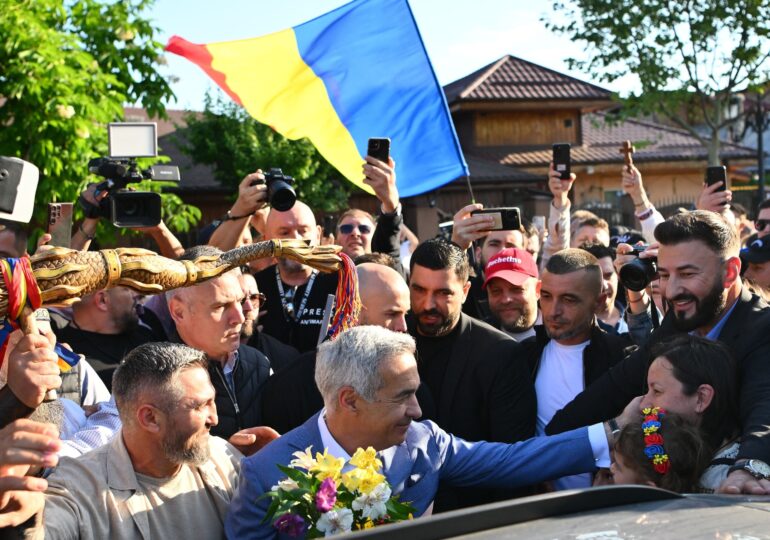The lack of a firm reaction from leaders in key leadership positions at that time made it possible to amplify messages coming from structures of influence controlled by the Kremlin, which turned a marginal figure into a Russian propaganda bomb.
Main ideas
- The 2024 elections were marked by direct and systematic involvement of Russia, which used a media and social infrastructure developed over time to promote a pro-Kremlin candidate. Călin Georgescu became the symbol of this influence, pushed into the spotlight by online networks, informal groups, and platforms with external ties.
- Although he had no political experience and did not hold public office, Călin Georgescu had been consistently promoted since 2011 by circles and individuals who tried to establish him as an alternative to the political class. There is a public reference made by Traian Băsescu regarding the fact that he was introduced by a person with access to the President of Romania, proposing him for the position of prime minister. The image campaign was conducted through websites, social media pages, and messages aimed at building an artificial credibility.
- Faced with this influence campaign, Romanian authorities did not provide a coherent response. Although there were signals from the press and European institutions regarding propaganda and fake news from Russia, the state limited itself to general statements. This passivity allowed the consolidation of an influence network that affected the democratic process.
The Phenomenon
Understanding and deciphering the Georgescu phenomenon are important steps towards healing the Romanian political system and strengthening the independence and security of the electoral process. The events of November 2024 brought a period of maximum tension in society, despite attempts by some political leaders to downplay the severity of the ensuing crisis.
The Test of Romanian Democracy
The 2024 elections represented a crucial test for Romanian democracy — a test that, unfortunately, was failed not only by political parties, but also by the press, political strategists, and government institutions, including intelligence services.
Romania was hit by a massive intervention from Russia, which, through an infrastructure built over time, managed to promote a pro-Kremlin candidate. He was, until then, a marginal figure, treated with indifference, but who, through a coordinated campaign, was thrust into the public spotlight.
Promotion
Since 2021, there have been signals of intense promotion of Călin Georgescu on websites, pages, and social media accounts, supported by so-called informal leaders. All of these worked towards legitimizing him as a "professional" and potential political leader.
In reality, Georgescu was not affiliated with any party, was not elected to any public office, and did not have a proper political career. Nevertheless, over the past decade, his name has periodically been brought to public attention by groups and individuals with ties to Russia.
Constant Support
Over the years, Georgescu's promotion has come almost exclusively from pro-Kremlin circles. He was supported or mentioned by platforms such as Sputnik and Russia Today, part of Vladimir Putin's propaganda media apparatus.
These structures have acted in concert in Europe and the United States, aiming to promote an anti-Western vision and destabilize liberal democracies. In Romania, Georgescu became an ideal vector for this type of discourse, being presented as a "moral alternative" to the political class.

The Mysterious Lack of Reaction
What is most shocking is the absence of a coherent institutional response. Faced with this infiltration, neither the government, nor the presidency, nor the intelligence services reacted.
Although there were warnings from the press and the European Commission about the massive spread of Russian disinformation, the Romanian state responded only with formal declarations: "We are in NATO, we are in the European Union, we are protected." In reality, this passivity encouraged interference, leaving room for the consolidation of influence networks.
A possible explanation for the increased visibility and intensity of populist-ultranationalist narratives is related to the fact that after a period in which they manifested marginally as a relatively eccentric current in Romanian society and after the shock of electoral success in the parliamentary elections, the main vectors promoting such discourse gained experience, refined their tactics, and managed to expand their coverage area by multiplying their tools and audience.
Remus Ștefureac, INSCOP director, 2021 study
Continuity
Russian influence on Romania is not new.
It was consolidated in the post-December 1989 period, when individuals close to Moscow occupied key positions in intelligence structures and the government.
After Vladimir Putin came to power, this network was reactivated and began to act systematically. Romania became a strategic target, and the Georgescu phenomenon represents just the visible tip of a much broader influence mechanism, sustained by money, media, and politicians willing to collaborate.
The Lesson of an Ignored Crisis
Călin Georgescu, although an unknown figure to most voters, was prepared for his role at least a decade in advance. The case illustrates how vulnerable Romanian democracy is to external manipulation and internal complicity.
Understanding and acknowledging this episode is not just a matter of political justice, but an essential condition for defending national sovereignty.

